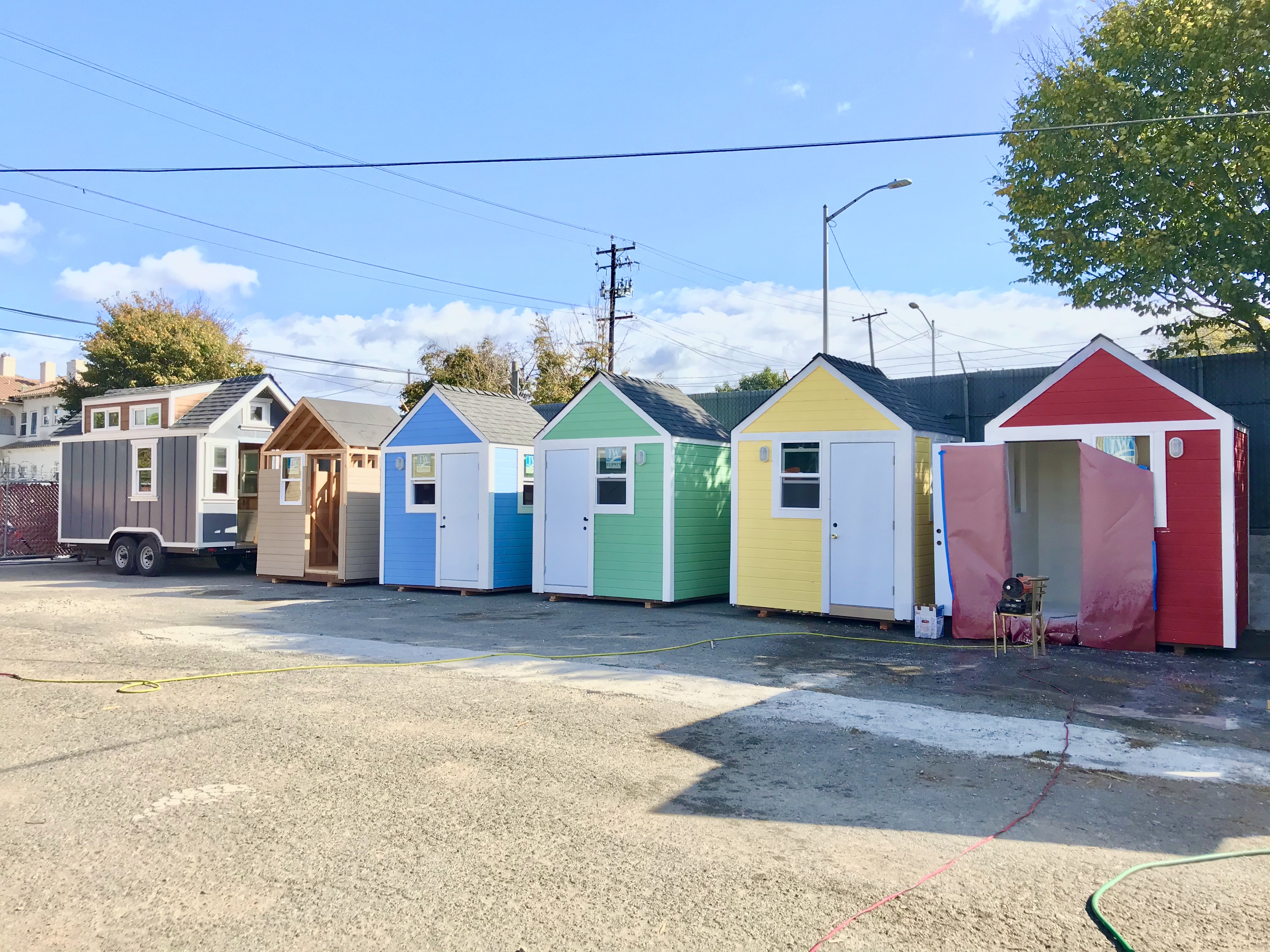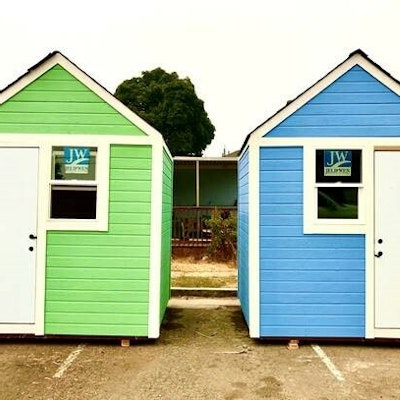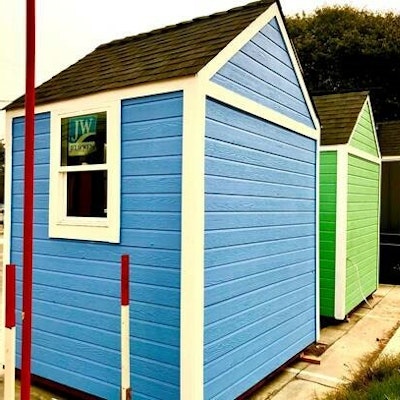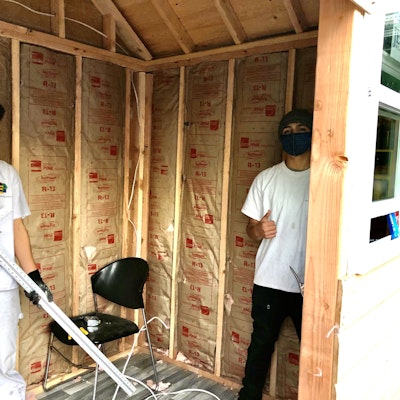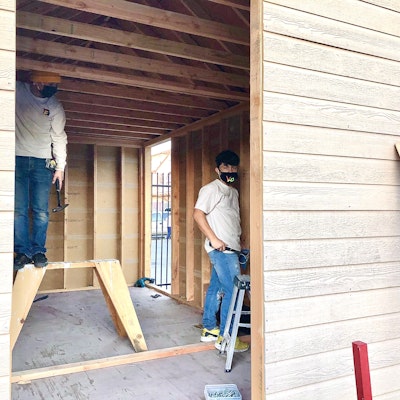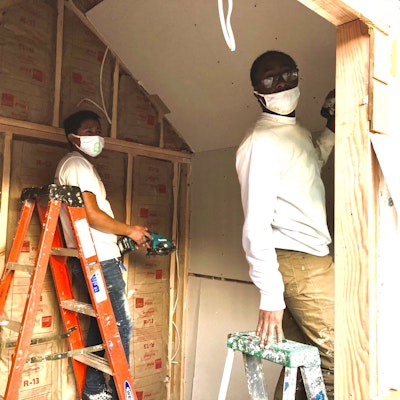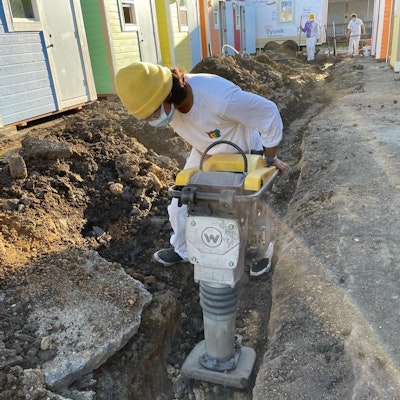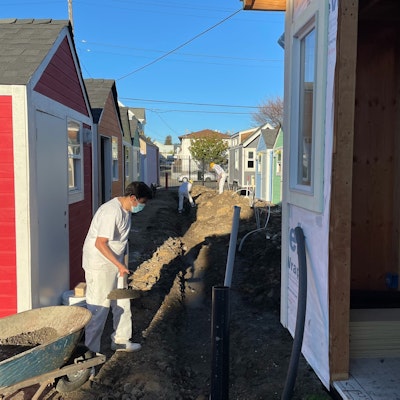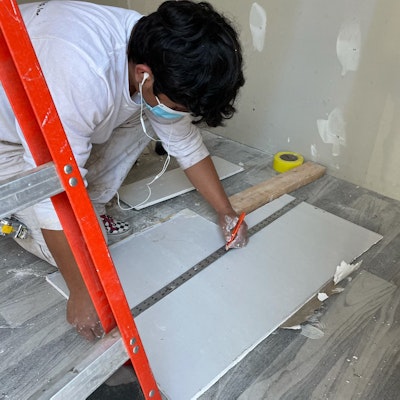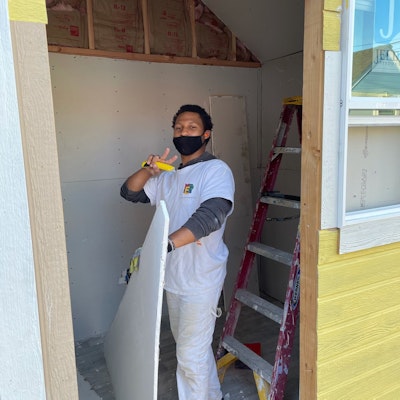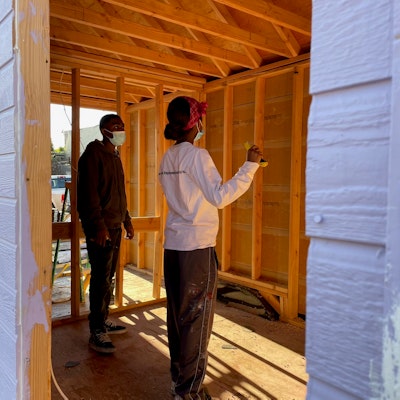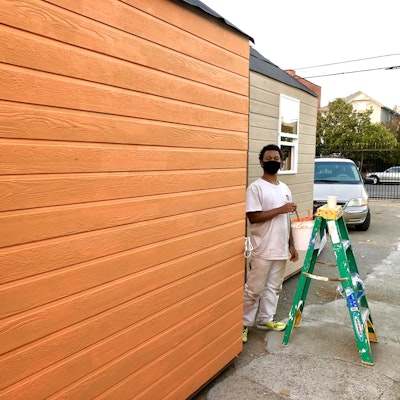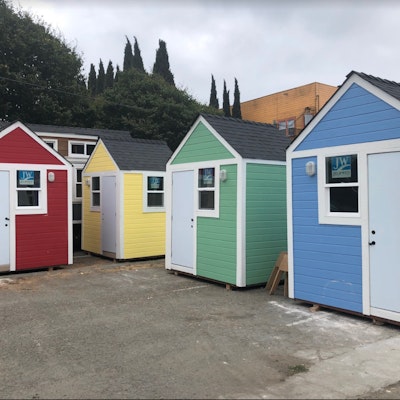With a $175,000 in City of Oakland CARES Act funding, the Youth Employment Partnership, Inc. (YEP) constructed a 12-unit transitional tiny home community for homeless young adults completing their high school diploma, working on industry-recognized certification, or preparing to attend community college. In addition to the 12 cozy, single-occupancy tiny homes (2 onsite Resident Counselor units + 9 standard units + 1 ADA-compatible unit), the community has two fully-accessible bathrooms and showers, a communal kitchen and meal tables, laundry access, secure onsite storage, external lighting and security cameras, iron-gate perimeter, and daily breakfast and dinner prepared by YEP culinary arts trainees.
All residents living in the tiny home community will have access to YEP's comprehensive services, including an assigned case manager, vocational training and employment development programs, education support and tutoring, and supportive services, such as legal and mental health referrals.
Building of the tiny home community also doubled as a construction training site for YEP youth and young adults enrolled in our construction workforce development program. As part of their training, 10 YEP trainees received hands-on, paid work experience and guided instruction as they completed the tiny homes from the ground up. Construction work included framing and flooring, electrical and window installation, insulating and weatherization, and painting. The youths also assisted with other features of the tiny homes such as full-insulation and heating, double-paned vinyl windows, twin bed and rolling storage drawers, interior lighting and two electrical outlets, overhead storage, folding chair and study table, and hard-wired smoke detectors.
The YEP transitional tiny home community aims to stabilize homeless young adults in Oakland and to move them through postsecondary education while developing their workforce skills and addressing other life barriers. The goal is to tackle housing insecurity as it appears early on in their lives and equip them with the education, technical skills, work experience, and wherewithal to obtain middle-wage jobs, protecting against future episodes of homelessness.
